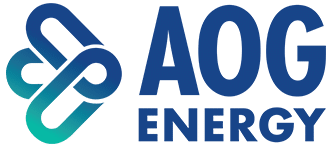“Blowing up the concrete” a good start to developing a more diversified industry
“To really get change we need to blow up the concrete”, so says leading international Diversity and Inclusion specialist, Juliet Bourke.
The “concrete” Juliet is referring to are the ideas, policies, practices and behaviours that have become a “calcified” part of the ways some industries and businesses have been run for way too long.
Juliet, who leads Deloitte Australia’s Diversity and Inclusion Consulting practice and co-leads its Leadership practice, says that many modern workplaces are a legacy of practices and actions that have often been in place fora very long time and that were not developed to be inclusive.
“In those instances we need to have a cultural reset. We need to bring about change to those calcified policies and practices that hold the status quo in place,” Juliet says.
“We have to take a hard look at what are the bits of concrete that are holding people back. Look for parts that need to be jack hammered off, that are no longer needed.”
According to Juliet there are many areas of calcification that are relatively easy to fix.
For example companies can make big changes simply by improving access to flexibility. Rather than the old-fashioned idea that jobs are full-time, and flexible working is a modification that people access “on bended knee”, some organisations have inverted the process to make the starting point flexibility for everyone. As Telstra says “All roles flex”.
Another area that could be changed quite easily is the area of recruitment and how job descriptions are framed.
“We need to make job descriptions reflect modern reality and thus open up opportunities for a broader group of potential employees.”
For example, she asks, does an applicant in the mining industry have to have a certain level of driver’s licence when the job actually entails working with driverless equipment?
“We need to open up a discussion about what parts of roles are an historic legacy, and what parts support a diverse workforce,” Juliet says.
In the oil and gas sector for example, Juliet questions whether Fly-In/Fly Out arrangements and roster cycles benefit one type of worker and leave others struggling. “If organisations want to ensure they are tapping into a diverse pool of talent, they will need to reconsider long standing practices. When people say “it can’t be done”, I always wonder if they are trying hard enough?
According to Juliet, “blowing up the concrete” is one of three areas that industry, companies and individuals need to consider when examining their position on Diversity and Inclusion.
“To start with we need to be thinking more deeply about what we mean by diversity. Too many people think that just getting a workplace that looks more diverse is the final destination. I think that’s just a signal that we are getting closer to diversity of thinking. Tapping into the different ways that people solve problems.”
Juliet says there has been a definite change in the narrative within Australian industry on what diversity is and how to bring it into modern thinking and practices.
One of the key elements for successfully establishing and maintaining a business that supports diversity and inclusion is finding the right people to implement it.
“We need to look at how we create teams of people who can solve the problem and champion the ideas of diversity.”
She said there needs to be a clear structure for identifying the make-up of these teams and the policy decisions they are making.
“We need to identify what it means to be an inclusive leader. Inclusive leaders make a huge difference to individual and team performance. It’s a valuable learned capability. Inclusive people are made – not born.
“It is really through the right leadership that create workplaces that are high performing. Ones in which everyone thrives.
“Leaders also need to examine their role as a leader and how their own personal behaviour can be inclusive.”
Juliet says these are just some of the low hanging pieces of concrete that companies and individuals can “blow up” to help develop a more diversified and inclusive society.
About Juliet Bourke
Juliet Bourke has over 25 years’ experience in human capital, management and law. Her latest book, the 2016 bestseller entitled ‘Which two heads are better than one?: How diverse teams create breakthrough ideas and make smarter decisions’, helps leaders understand how to systematically create diverse thinking and take team performance to the next level.
Juliet is a member of Navy’s Diversity Council, the RBA’s Diversity Council and sits on a number of boards and award panels, such as the Telstra Business Awards, the Harvard’s Women’s Leadership Board and the UNSW Business School’s HR Board. Juliet’s own awards include Women Lawyers Association of NSW (Achievement Award), University of NSW (Alumni Award) and Centre for Leadership for Women.
Register free now for AOG 2018 to see it all!
The Australasian Oil & Gas Exhibition & Conference runs from March 14-16 at the Perth Convention & Exhibition Centre.
You may also like
-
Stay up to date with the latest news, industry insights and AOG Energy updates.
- Subscribe

